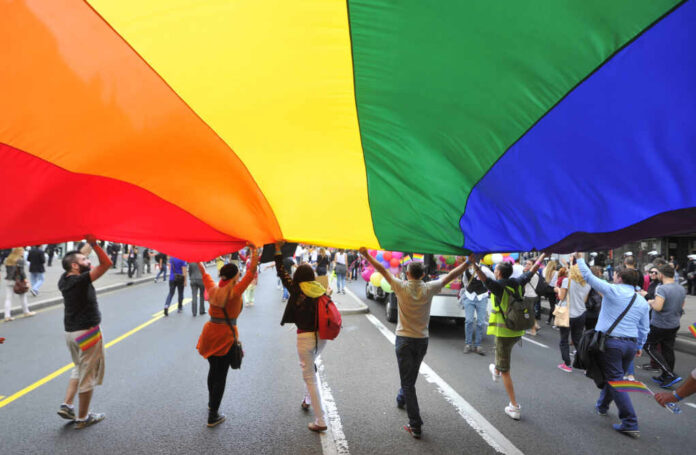
Amidst growing concerns about family-friendly Pride events, parents find themselves at a crossroads over whether children should witness these controversial celebrations.
At a Glance
- Debate over children attending LGBT Pride parades ignites as opinions clash.
- Critics voice concerns about exposing children to adult-themed content at Pride events.
- Dallas event footage fuels the call for a moral revival through religious intervention.
- Advocates push for legal reforms to protect children from inappropriate exposure.
Diverse Opinions on Pride Events
Should parents take their children to LGBT Pride parades? The question remains polarizing. Advocates like Heather Tirado Gilligan support participation, arguing it offers educational benefits and exposure to diverse family structures. However, she acknowledges the need to prepare children for unexpected sights, including public nudity and displays of kink. Critics argue that such exposure normalizes adult sexual content for children, raising alarms about the potential impact on moral development.
This debate extends to concerns that Pride’s evolution from its Stonewall roots into a mainstream spectacle has muddied its historical significance. While once a celebration of LGBTQ+ resilience and chosen families, modern Pride is perceived as a commercialized event, drawing in crowds eager for entertainment rather than meaningful engagement with the community’s values.
Controversial Event in Dallas
A recent “all ages” Pride event in Dallas, Texas, has stoked these fiery discussions further. Footage captured by the pro-family Texas Family Project shows adults in scanty clothing, sexualized merchandise, and erotic artwork. Critics argue that events like these, paired with child-friendly attractions like petting zoos, create cognitive dissonance—camouflaging inappropriate content within seemingly innocent trappings.
“But it is necessary to talk to kids about new things they may see at Pride before diving [into] it.” – Heather Tirado Gilligan
Such revelations invigorate calls for legal action and strategic voting to oust “LGBT activists” holding sway over educational and cultural policies. Advocates seek to leverage local ordinances and the influence of school boards and city councils to fortify protections for children.
Call for Moral and Religious Revivals
As the cultural tug of war intensifies, religious groups advocate for a spiritual awakening to remedy what they describe as societal degradation. They suggest that the vision for revitalization should be deeply rooted in prayer, repentance, and engagement with Jesus Christ’s teachings. This path is seen as a necessary counterbalance to perceived moral decline and as an antidote to the normalizing trends of adult sexual content in family spaces.
“This tension sometimes gets reduced to a single question: Should Pride events be “family-friendly”?” – Lucy Diavolo
As this contentious dialogue continues, activists encourage faith communities to take initiative—dominating local politics, altering educational guidance, and ensuring children are insulated from adult-themed exposures. The roadmap to revival, they argue, lies in collective moral and spiritual action.

























